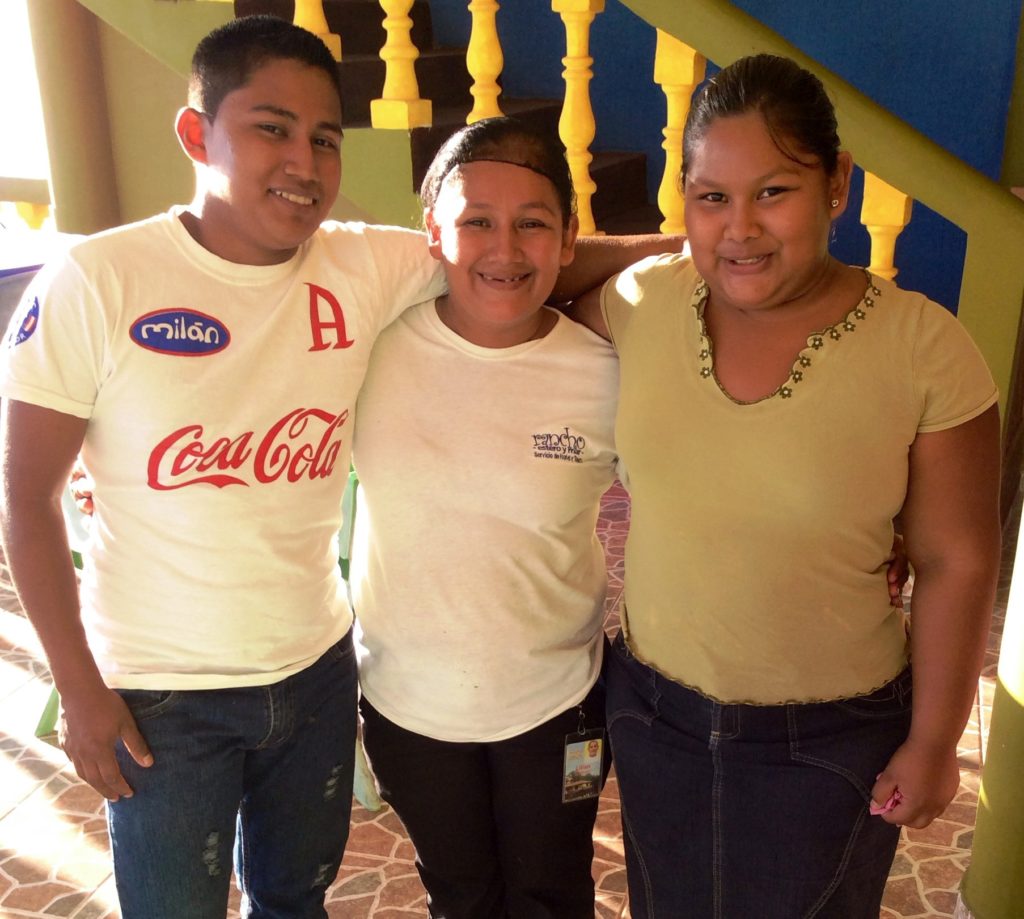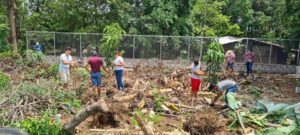Storytellers do not always come alone to our interviews. Often friends or family members accompany them for support. Besides my asking questions and taking notes, I find myself gleaning helpful information from those “sidekicks.” It may be the revealing body language of the companion. It may be expressive eyes. It may be a comforting touch or gesture that is telling. I notice from time to time that these people are discovering never-known things about their friends or relatives during our interview, or are seeing their loved ones in a very different light.

Her body language was so easy to read – her large brown eyes twinkling like stars, her head nodding in approval or shaking in despair while her lips sealed tightly and her eyes trembled. Other times she shuddered in fear or giggled in animation as if recalling vivid memories of what we were discussing. It didn’t matter that this daughter-in-law of the interviewer didn’t speak our language; just by watching her we knew exactly how she felt. I wish we had had a video to capture those priceless expressions. I could practically see the snake crawling through the cane fields solely from her reaction to his words. She brought his story to life!

We had a situation in which one brother served as translator for another brother. During a critical part of the interview, the older brother being interviewed shared his decision during the civil war to leave that younger brother behind – making him vulnerable to the enemy. Now many years later we as neutral interviewers have the opportunity to ask questions about how each of them felt as a result of that decision.
At the end of this interview, our translator friend, (the younger brother), related, “We have NEVER talked about this EVER!” This interview provided such a healing opportunity for these two brothers – neither of whom wanted to bring up the sensitive issue with one another before lest it ruin their relationship; however they were receptive to discussing it with neutral friends who asked the questions. They hugged; they cried; they were cleansed as they unburdened these lingering questions and pent-up feelings all these years later.
I think they each have a deeper understanding and appreciation for the situation the other faced at the time. Maturity is on their side to accept what the other was experiencing at the moment the decisions were made.
Another friend introduced us to a friend of his he has known for twenty years. He has never asked him the specific details regarding a stormy past that got his friend into trouble with the law. It was unimportant to our friend. We asked this young man during our interview if he would mind sharing those details, and he quickly agreed.
He cried and cried and cried as he vividly recalled the horrors he had lived. Having only a napkin on the table to provide comfort for this gut-wrenching story, my eyes averted to our friend who was hearing some of this story for the first time.
It had to be difficult. None of it would matter to him because he is an incredibly accepting and sacrificial person and certainly would not alter their friendship. But my heart went out to him also seeing the raw emotions of his friend sitting beside him exposed. No information was coerced; all was shared willingly, I think (and certainly hope), with the utmost respect.
A mother and daughter were jointly sharing the story of their husband/father who was one of the first Lutheran pastors in the country. Besides being a pastor he was actively involved in what would now be considered social work in his community. At the time he served, he was considered a threat to the government and was martyred in cold blood. His wife carried the yellowed, tattered newspaper articles reporting his death to show us.
His daughter was young when it happened and had turned against the church at the time. Now she did a full 360 and wanted to follow in her dad’s footsteps. Her mother was against the whole idea. But at some point during the interview as her mother listened to her daughter’s perspective talking to neutral North Americans, she began to transform her thinking, and slowly she came to endorse her daughter’s decision to study at the seminary and become a pastor.
Would this have happened without the interview? Who is to say? Perhaps. But a seed began to germinate during this interview and slowly rooted in her mom’s fertile heart allowing acceptance to take place over time.
Two massacre survivors sat together as one by one we interviewed each of them about their personal stories of heroic survival during events of May, 1980, when civilians in villages up and down the Sumpul River were tortured and killed by the military. They didn’t know one another at the time, but now they accompany each other for support as they recall the atrocities for groups interested in learning about them. If one wavers due to emotions, the other can fill in missing details because they know one another’s histories so well. They instinctively reach across and lay a hand of support in the lap of the other when sensing it is needed. They are not family but have become “family” though their mutual experiences. Their eyes tear up as much while listening to each other as while telling their own details of surviving.

In a similarly emotional interview when the tortured and abused storyteller mopped the sweat and emotions pouring out of her face, her stepdaughter appeared out of nowhere tenderly handing her glasses of water to allow her time to gather her thoughts and give her brief moments of respite to regain her composure. She had been listening on the sideline and she knew when the story was getting tense. She knew when her mom needed a break from sharing the trauma she has lived through.
These kinds of subtle experiences among friends and family of storytellers do not appear in their stories. Words are inadequate to explain these phenomena that occur during our interviews. Yet they remain vivid and indelible in my memory as I recall the shared experiences.

Some examples are so subtle – a look, a tear, a nod, a shrug, a shiver, a trembling hand that communicate not to continue this line of questioning. A simple hesitation in a response may communicate, “Give me a moment to collect my emotions or thoughts before I can continue.”
Learning to observe these signs and body language allow us to give our storytellers our full attention, to offer them the dignity and respect they deserve, to show our gratitude for their sharing their stories and trusting that we will re-tell it as accurately and faithful as we possibly can.


